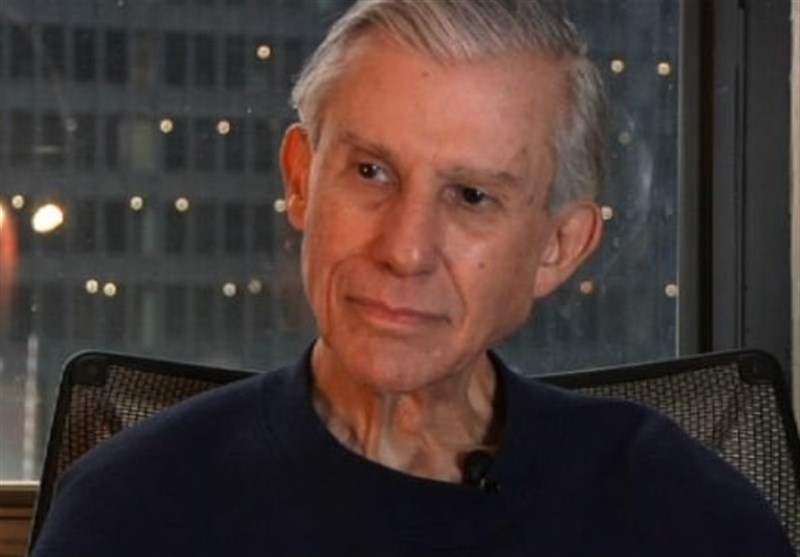
US-North Korea Talks to End in Washington’s Betrayal like JCPOA

"Bilateral talks (between the US and North Korea) will likely continue for many
months or years, ending again in US betrayal like earlier - very similar to
Washington’s pullout from the JCPOA,” Chicago-based Stephen Lendman told the
Tasnim News Agency in an interview.
"(US President Donald) Trump’s JCPOA pullout shows Washington can never be
trusted,” the analyst said, adding, "It consistently agrees to one thing and
does another, betraying its negotiating partners. It tells me hope for durable
peace and reconciliation with North Korea is pure fantasy.”
Stephen Lendman is a writer, syndicated columnist, activist, News TV
personality, and radio show host. He currently writes for MoneyNewsNow.com and
VeteransToday.com and hosts, since 2007, a progressive radio show at The
Progressive Radio News Hour on The Progressive Radio Network.
The following is the full text of the interview:
Tasnim: US President Donald Trump and North Korean leader Kim Jong-un concluded
their recent historic summit in Singapore by signing a deal that included a
pledge to "work toward complete denuclearization of the Korean Peninsula.” What
do you think about the agreement and how do you predict its success given
Washington’s non-commitment to international treaties?
Lendman: I’ve written volumes on Trump’s summit with North Korean leader Kim
Jong-un, along with what preceded and followed the first ever meeting between
leaders of both countries. Kim, his father, and grandfather long sought
normalized relations with Washington and the West - never achieved because US
administrations undermined their good faith negotiations and agreements.
Is this time different with the most hardline/extremist ever US administration
in power? Washington has been at war with the DPRK since the late 1940s. An
uneasy armistice persists. US administrations were never willing to recognize
North Korean sovereignty nor end a state of war officially since the early 1950s
conflict ended - Harry Truman’s war, not Kim Il-sung’s.
The DPRK today wants Washington and South Korea agreeing to a formal peace
treaty, unacceptable sanctions lifted, the nation’s sovereign independence
respected, and most of all firm security guarantees, ending the threat of war on
the country.
I strongly believe hardliners in charge of Trump’s geopolitical policies will
never grant North Korea what all countries deserve. Bilateral talks will likely
continue for many months or years, ending again in US betrayal like earlier -
very similar to Washington’s pullout from the JCPOA.
All US administrations want pro-Western puppet regimes replacing sovereign
independent countries worldwide - including Iran, North Korea, Russia, China,
and all others.
Peace and stability are anathema to their agenda. Endless wars of aggression and
color revolutions serve Washington’s imperial ambitions - seeking unchallenged
global dominance.
Tasnim: On Sunday, Trump attacked Senate Minority Leader Chuck Schumer in a
tweet over the New York Democrat's criticisms of the North Korea summit. Schumer
said the summit was "what the Texans call all cattle and no hat”. What do you
think about the domestic disputes over the deal?
Lendman: Undemocratic Dems are hostile to Trump talks with Kim Jong-un. They
want continued hostility toward the DPRK. Hardline Republicans feel the same
way, whether or not they’ll publicly admit it.
Most everyone in Washington opposes reunification of the Korean Peninsula.
Achieving it would weaken the US claim about needing to keep troops in South
Korea and Japan for regional security reasons.
Tasnim: As you know, Trump recently announced the US withdrawal from the 2015
nuclear deal between Iran and the Group 5+1 (Russia, China, US, Britain, France,
and Germany). Prior to the move, the US had repeatedly violated the
international pact by imposing numerous sanctions against the Islamic Republic.
Given Washington’s non-commitment to such an important international agreement,
what would be a guarantee of success of the US-North Korea deal?
Lendman: Trump’s JCPOA pullout shows Washington can never be trusted. It
consistently agrees to one thing and does another, betraying its negotiating
partners. It tells me hope for durable peace and reconciliation with North Korea
is pure fantasy.
Source: Tasnim















